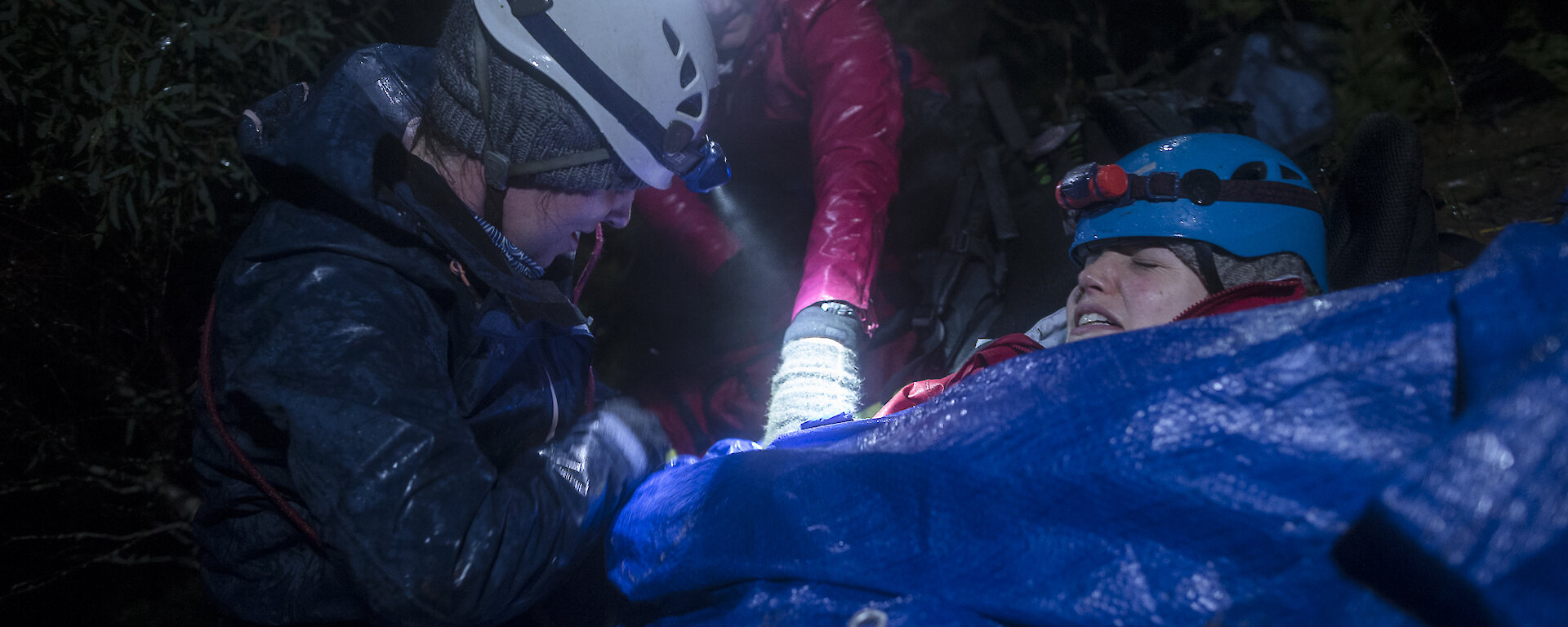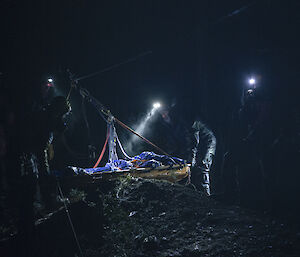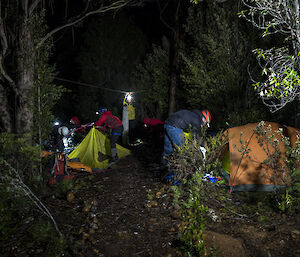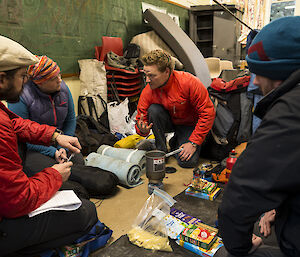Antarctic-bound doctors have spent a wet and wild week in the Tasmanian wilderness, honing their cold climate and remote medicine skills.
During the eight day Expedition Medicine Winter Course, run by the University of Tasmania and Australian Antarctic Division, participants were challenged to abseil down cliffs and undertake search and rescue scenarios in dark, wet and freezing conditions.
Dr Kate Kloza, who is heading to Davis research station for the 2017–18 season, said the course had challenged her to step outside her comfort zone.
“What I really enjoyed was getting that big picture on all aspects of the planning and conduct of a wilderness medicine retrieval,” she said.
“It’s not the same as a hospital or general practice setting, where the patient comes to me. Instead we have to work to make the patient safe for transportation, which means stabilising them in the field, where you don’t always have the optimal equipment available.”
“There’s also been plenty of opportunities to rope up and do different things that definitely fall outside the remit of regular general practitioner.”
As well as rope skills and search and rescue techniques, participants practiced cold injury management, wound repair, the use of splints and stretchers, steep terrain rescue and evacuation, remote area communication, and navigation skills.
Australian Antarctic Division medical practitioner and course instructor, Dr Clive Strauss, said the Division is recognised as a leader in the areas of cold climate, remote and extreme medicine.
“Over many decades the Division has developed and refined how we deliver medical care in extreme and isolated environments to ensure we can respond to scenarios and deliver high quality health care in Antarctica and the Southern Ocean,” Dr Strauss said.
Each of Australia’s three Antarctic stations, and sub-Antarctic station on Macquarie Island, has a medical practitioner who is responsible for the care and well-being of all expeditioners with the support of the Division’s 24/7 telemedicine systems, connecting them to experts based in Hobart.
The expedition medicine course also covers pre-expedition planning and appropriate contents for an expedition medical kit.
The Antarctic-bound doctors were joined by other medical professionals and wilderness instructors on the course, which is open to the public and is also offered as part of the University of Tasmania’s Master of Public Health (Remote and Polar Health) course.





